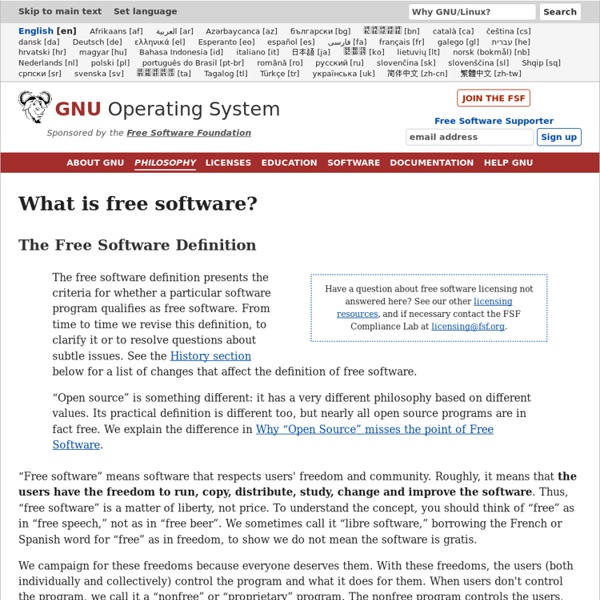Qu'est-ce que le logiciel libre ?

Licenses Libres
Our public copyright licenses incorporate a unique and innovative “three-layer” design. Each license begins as a traditional legal tool, in the kind of language and text formats that most lawyers know and love. We call this the Legal Code layer of each license. But since most creators, educators, and scientists are not in fact lawyers, we also make the licenses available in a format that normal people can read — the Commons Deed (also known as the “human readable” version of the license). The final layer of the license design recognizes that software, from search engines to office productivity to music editing, plays an enormous role in the creation, copying, discovery, and distribution of works. Searching for open content is an important function enabled by our approach. Taken together, these three layers of licenses ensure that the spectrum of rights isn’t just a legal concept.
Apache OpenOffice The Free and Open Productivity Suite
Linux Ubuntu
Logiciel libre
Un article de Wikipédia, l'encyclopédie libre. Logo du projet GNU, initiateur du mouvement du logiciel libre. Un logiciel libre est un logiciel dont l'utilisation, l'étude, la modification et la duplication en vue de sa diffusion sont permises, techniquement et légalement[1]. Ceci afin de garantir certaines libertés induites, dont le contrôle du programme par l'utilisateur et la possibilité de partage entre individus[2]. Ces droits peuvent être simplement disponibles (cas du domaine public) ou bien établis par une licence, dite « libre », basée sur le droit d'auteur. Les « licences copyleft » garantissent le maintien de ces droits aux utilisateurs même pour les travaux dérivés. Les logiciels libres constituent une alternative à ceux qui ne le sont pas, qualifiés de « propriétaires » ou de « privateurs »[Note 1]. Le logiciel libre est souvent confondu à tort avec : Définition[modifier | modifier le code] Premières ébauches[modifier | modifier le code] La FSF précise quelques points.
Related:
Related:



